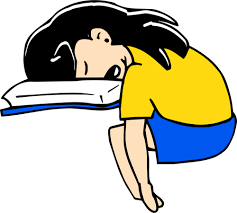|
The Importance of Sleep in Health and Cognition
“The death of each day’s life, sore labour’s bath, Balm of hurt minds, great nature’s second course, Chief nourisher in life’s feast.” -Macbeth In the passage above, Shakespeare’s Macbeth extols the virtues of sleep when he believes he has been cursed to never sleep again. He notes the restorative properties of sleep to both mind and body, and 600 years on, modern science supports this intuitive view of sleep as the “chief nourisher in life’s feast.” While scientists haven’t quite landed on a single theory of why we sleep, the functions of sleep are clear and two-fold; to repair and restore the body, and to synthesize and store new learning and memories. The vast physiologic repair that occurs during sleep spans immune function, appetite regulation, muscle repair, and the release of metabolic and reproductive hormones. In one experiment, rats who were totally sleep deprived for just over a month completely lost their immune function and died. The role of sleep in cognition has also been shown to have immense impact, particularly on cognitive performance, insight and creativity, mood and emotional stability, and even regulation of pain. Most men require 7-8 hours of sleep each night, while most women should aim for 8-9 hours. This number generally shrinks in the second half of life. Without it, we are not only tired but sick, overweight, emotionally unstable, mentally cloudy, and we feel more pain. Good sleep is a staple of health, with arguably greater influence than eating well and exercise. But it eludes many, with 1 in 3 Americans getting insufficient sleep and most of those clocking in at under 6 hours a night. With 70 million Americans reporting sleep deprivation in 2014, the CDC labeled it a public health epidemic. Major contributors to sleep deprivation are time demands, like caring for children, working from home, or simply time-consuming habits like TV or social media at night. But disorders like anxiety or depression are also common perpetrators of insomnia in the average American. Here are a few, evidence-backed steps to take to help you get better sleep.
0 Comments
Leave a Reply. |
Author'sEach blog is authored by one of our distinguished coaches on something that is passionate to them! Archives
January 2020
Categories
All
|

 RSS Feed
RSS Feed